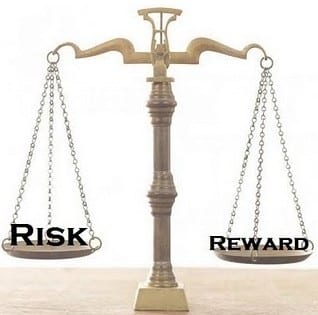When it comes to Forex trading, there are plenty of truths that often go unspoken. Most mainstream sources tend to gloss over the realities of what it really takes to become a successful trader. In this article, I’m sharing seven hard-earned lessons—discovered through experience and trial and error—that can help make your journey into Forex trading a little more informed and a lot less painful.
1: You Don’t Need to Be a Genius to Succeed in Forex Trading
One of the most common myths about successful traders is that they’re exceptionally intelligent or possess some kind of financial superpower. The truth is, many profitable traders don’t have advanced degrees—and some never even completed college. That’s because trading success is less about raw intellect and more about mindset.
Forex trading is primarily a psychological game. It demands emotional intelligence, discipline, and self-control far more than it does complex math or academic credentials. Mastering the ability to remain patient and resist constant temptation is what truly separates consistent traders from the rest.
2: Humans Are Hardwired to Be Bad at Trading
While some individuals may have a slight edge in temperament, the truth is that no one is born naturally equipped to be a great trader. In fact, our instincts often work against us in the markets. Evolution has programmed us with a “fight or flight” response—designed to help us survive in the wild, not to manage risk and reward in front of a trading screen.
When real money is on the line, our brains react as if we’re under physical threat. A loss feels like losing a hard-earned meal in the wilderness, triggering emotional responses that push us to chase losses or overtrade after a win. These primal reactions are deeply rooted and automatic.
Successful trading requires conscious effort to override these impulses. It demands activating the more evolved parts of our brain—like the prefrontal cortex—responsible for planning, patience, and long-term thinking. Without a structured plan and emotional discipline, most traders fall victim to their instincts, making irrational decisions that sabotage their success.
3: Pro Traders Don’t Obsess Over Percentage Returns
 One of the lesser-known truths about trading is that percentage returns are often misleading and, frankly, not that important. When someone says they made “100% last year,” it tells you very little. That could mean a beginner doubled a $300 account through risky trades or a seasoned pro steadily grew a much larger account with discipline and strategy. The context behind the percentage is what really matters—and it’s often missing.
One of the lesser-known truths about trading is that percentage returns are often misleading and, frankly, not that important. When someone says they made “100% last year,” it tells you very little. That could mean a beginner doubled a $300 account through risky trades or a seasoned pro steadily grew a much larger account with discipline and strategy. The context behind the percentage is what really matters—and it’s often missing.
Professional traders don’t evaluate their performance based on percentage gains. Instead, they focus on risk-to-reward ratios: how much was risked versus how much was gained. This metric gives a far clearer picture of trading skill and consistency. At the end of the day, it’s not about how big the return looks—it’s about how effectively you managed risk to achieve it.
4: Becoming a Successful Trader Takes Time and Mental Discipline
Every consistently profitable trader has spent countless hours learning through trial and error. Success in the markets isn’t just about refining strategies—it often requires addressing personal mindset issues that interfere with disciplined decision-making.
Anyone can become a successful trader, but few are willing to do the hard work. This means only trading when a true edge is present, managing risk properly, and staying disciplined even when it’s uncomfortable. For many, consistently following these principles is the hardest part.
Trading isn’t a typical 9-to-5 job. There’s no guaranteed paycheck, and income can vary wildly from month to month. That level of uncertainty doesn’t sit well with most people, which is why many traders try to set rigid income goals—like aiming for a specific dollar amount each month. But markets don’t conform to our expectations. The reality is: some months you’ll do very well; others you may just break even or face small losses. The key is to focus on process and execution, not chasing fixed outcomes.
5: Successful Forex Trading Should Be (Almost) Boring
Most people imagine professional trading as a fast-paced, adrenaline-fueled lifestyle filled with luxury and constant excitement. In reality, consistently profitable trading is far less glamorous—and often, pretty routine.
The truth is, when you trade with discipline, patience, and a solid plan, your results become predictable over time. You’re not chasing the thrill of big wins or agonizing over losses. Professional traders approach the market with emotional neutrality—they’re prepared for any outcome before they ever click “buy” or “sell.”
If you’re doing it right, trading should feel a lot like going to work: focused, steady, and unemotional. You don’t get a rush every time you show up at your day job—and you shouldn’t when you enter a trade either. When your heart rate stays the same whether you win or lose, that’s a strong sign you’re on the path to long-term success.
6: The More You Need to Make Money, the Harder Trading Becomes
 One of the biggest reasons traders struggle is because they put too much emotional pressure on themselves to succeed. When you’re desperate to make money from the markets, you’re far more likely to force trades, over-leverage, and make irrational decisions. Ironically, the more you chase profits, the more elusive they become.
One of the biggest reasons traders struggle is because they put too much emotional pressure on themselves to succeed. When you’re desperate to make money from the markets, you’re far more likely to force trades, over-leverage, and make irrational decisions. Ironically, the more you chase profits, the more elusive they become.
Many beginners enter trading with unrealistic expectations—hoping to quit their job quickly or get rich fast. But trading is full of paradoxes, and this is one of the biggest: needing to make money often prevents you from doing so. Emotional attachment to outcomes clouds judgment and fuels impulsive behavior.
The reality is that successful trading is about patience, restraint, and waiting for high-quality setups. If the market isn’t offering a clear opportunity, the best decision is often to do nothing. Accept that you won’t find a great trade every day—or even every week. Trying to force trades where none exist only leads to losses.
Profitable traders know that their real job is to wait, observe, and act only when the odds are in their favor. Over time, as your ability to identify high-probability setups sharpens, you’ll find yourself trading less—but with better results. Until then, err on the side of caution: when in doubt, stay out.
7: You Don’t Need Fancy Tools or Multi-Screen Setups to Succeed
Contrary to popular belief, you don’t need an elaborate trading station with multiple monitors or expensive software to be a successful trader. In fact, many professional traders operate effectively with just a laptop and a free charting platform like MetaTrader 4.
The most powerful tool in trading isn’t technology—it’s you. Your mindset, discipline, and ability to manage emotions play a far greater role in your success than any indicator or setup ever will. Once you learn to control the mental habits that lead to poor decisions, you’re already well on your way toward consistent profitability.
Combine that self-mastery with a simple, high-probability strategy—like price action trading—and you’ll have everything you need. The key isn’t more screens or complex tools; it’s clarity, focus, and emotional control.


